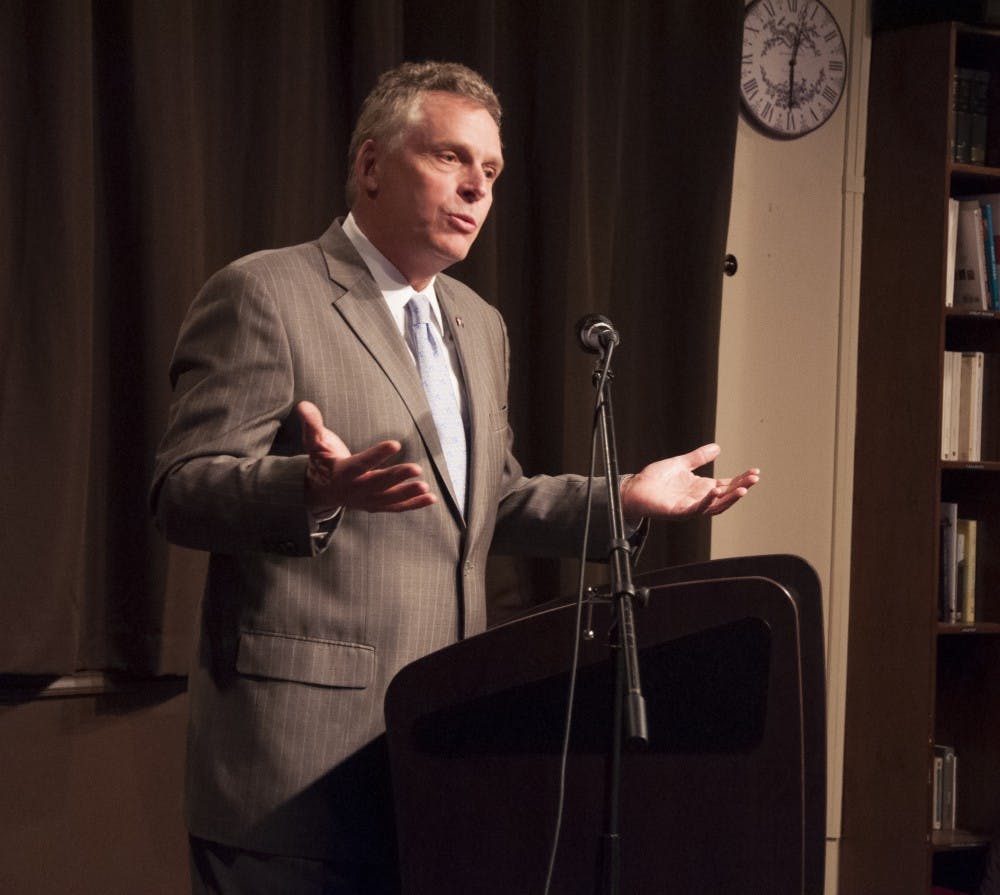Gov. Terry McAuliffe issued an executive order last Friday mandating the Department of Human Resource Management remove all questions on regarding criminal history on state employment application forms.
Executive Order 41, which applies to all state agencies within the executive branch, is meant to secure the civil rights of people with criminal records by ensuring they have access to the same employment opportunities as citizens with no convictions. The order also pushes the background check to a later point in the hiring process, and requires candidates to sign over a release of their record before a check can be initiated.
According to a press release from the National Employment Law Project, Virginia is the 15th state to implement the policy known as “ban the box” — in reference to the check-box found on state employment applications that denotes conviction history.
McAuliffe framed the policy as a means of giving a second chance to convicted citizens in the hiring process that will have a positive effect on employment, and by extension, the economy.
“Expanding employment opportunities not only improves the Commonwealth’s fiscal health, but also enhances the quality of life for all of her citizens by providing improved access to better housing, education, and other societal benefits,” McAuliffe said in the order.
Secretary of the Commonwealth Levar Stoney, who has worked with localities and grassroots organizations on Virginia’s ban the box initiative, said the executive order aims to enhance rehabilitation processes.
“We are showing that you build the new [Virginia] economy with new values — like giving people second chances and opportunities,” Stoney said. “We want those folks to be contributing members of society, paying taxes and working harder, not back in the cycle of incarceration.”
Although it is not generally seen to be a partisan issue, “ban the box” passed in the Senate but faltered in the House where Republicans blocked the bill. This failed attempt to ban the box statewide through Virginia’s General Assembly prompted Stoney and McAuliffe to consider an executive order, effectively circumventing the legislative gridlock.
The next step for proponents of fair-chance employment policies is to convince the federal government and private employers to get on board.
On the federal level, the U.S. Equal Employment Opportunity Commission, as well as President Obama’s equal employment task force, have both endorsed fair-chance standards.
Virginia Organizing, a grassroots organization which works on eradicating racial discrimination in Virginia, has spearheaded the ban the box campaign in Virginia’s localities and worked closely with the Secretary of the Commonwealth to bring the initiative statewide. Chairperson Sandra A. Cook said the organization is lobbying local officials to press the matter in the private hiring practices as well.
“Virginia Organizing Chapters worked with city leaders in Charlottesville, Danville, Fredericksburg, Harrisonburg, Martinsville, Portsmouth, Virginia Beach and Norfolk to ban the box in those localities,” Cook said in an email. “Now, the mayor of Charlottesville has agreed to write letters to 100 local businesses asking them to ban the box on their applications.”
Stoney said some national corporations like Walmart and Target have already done away with conviction questions on their employment applications, and McAuliffe is encouraging private employers to ban the box.
“You will see the governor as being an advocate for those who deserve a fair chance,” Stoney said.







